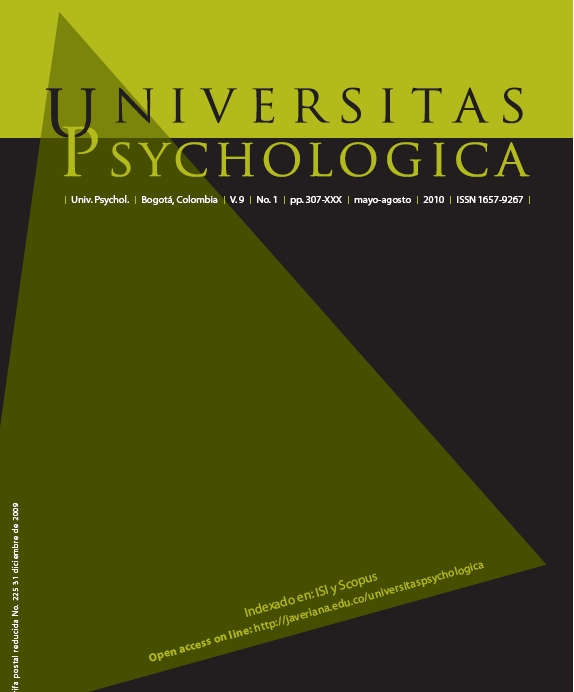Abstract
The purpose of this research was to establish the existence of gender differences in peers relationships and their relationship to prosocial and antisocial behavior at elementary, secondary and universitary education. Participants were 464 children and young people from primary school (n = 140), high school (n = 200) and university (n = 124) from different public and private educational institutions in the city of Valledupar (Colombia). The information about the peers relationship and prosocial and antisocial behavior were collected through peer nominations. We found that female tends to be more popular, whereas the male gender seems to be more rejected and excluded. Moderate correlations were found between prosocial and antisocial behavior and social preference and social impact. It was also found that women are more prosocial and have greater social preference in the primary, but the trend changes at the university, where men have a higher social preference and are more prosocial.
This journal is registered under a Creative Commons Attribution 4.0 International Public License. Thus, this work may be reproduced, distributed, and publicly shared in digital format, as long as the names of the authors and Pontificia Universidad Javeriana are acknowledged. Others are allowed to quote, adapt, transform, auto-archive, republish, and create based on this material, for any purpose (even commercial ones), provided the authorship is duly acknowledged, a link to the original work is provided, and it is specified if changes have been made. Pontificia Universidad Javeriana does not hold the rights of published works and the authors are solely responsible for the contents of their works; they keep the moral, intellectual, privacy, and publicity rights. Approving the intervention of the work (review, copy-editing, translation, layout) and the following outreach, are granted through an use license and not through an assignment of rights. This means the journal and Pontificia Universidad Javeriana cannot be held responsible for any ethical malpractice by the authors. As a consequence of the protection granted by the use license, the journal is not required to publish recantations or modify information already published, unless the errata stems from the editorial management process. Publishing contents in this journal does not generate royalties for contributors.


